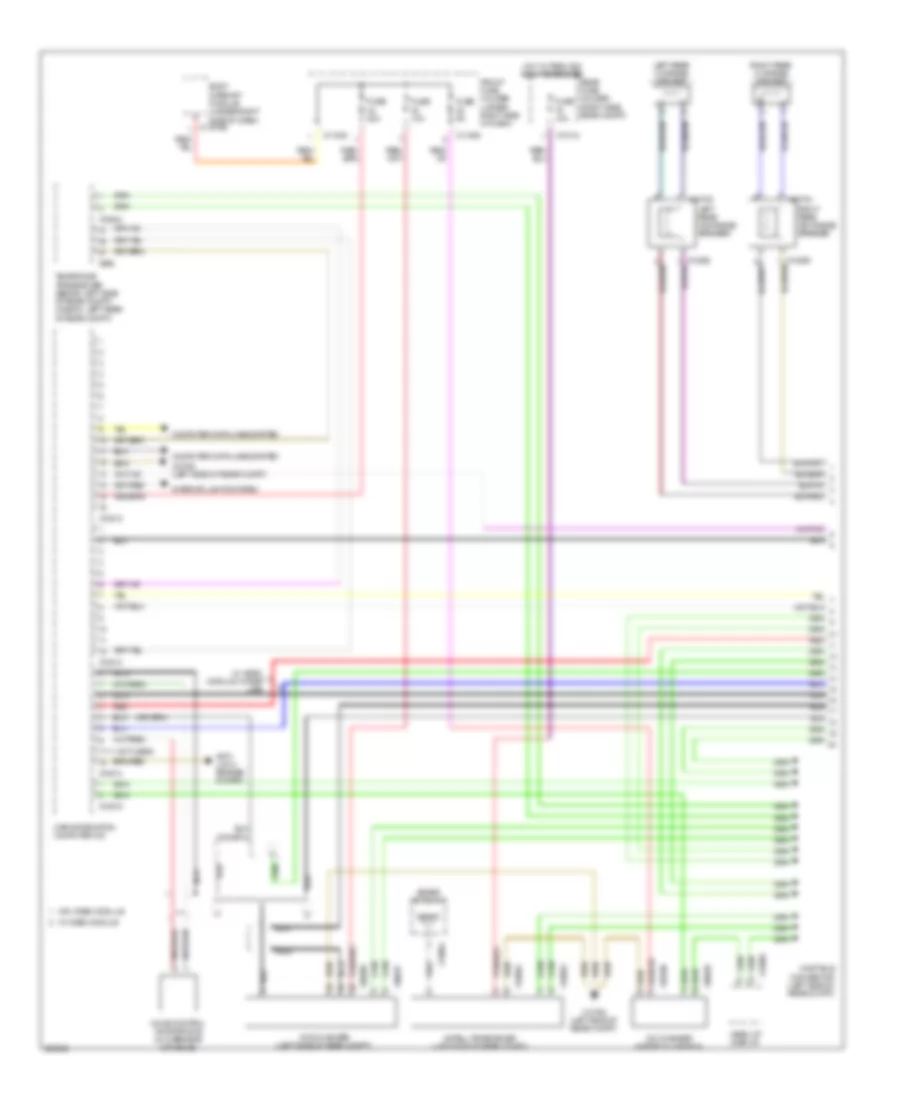
This was a feature added because of the limited lubrication in the two-stroke engine. Since motorcycles usually had small engines and limited electrical equipment, as well as restricted space and weight, the Dynastart was a useful feature. For the first examples of production German turbojet engines later in World War II, Norbert Riedel designed a small two-stroke, opposed-twin gasoline engine to start both the Junkers Jumo 004 and BMW 003 aircraft gas turbines as a form of auxiliary power unit to get the central spindle of each engine design rotating - these were usually installed at the very front of the turbojet, and were themselves started by a pull-rope to get them running during the startup procedure for the jet engines they were fitted to. The electric starter motor or cranking motor is the most common type used on gasoline engines and small diesel engines. It was still common for cars to be supplied with starter handles into the 1960s, and this continued much later for some makes (e.g. Citroën 2CV until end of production in 1990). In many cases, cranks were used for setting timing rather than starting the engine as growing displacements and compression ratios made this impractical.
 When DC power from the starting battery is applied to the solenoid, usually through a key-operated switch (the "ignition switch"), the solenoid engages a lever that pushes out the drive pinion on the starter driveshaft and meshes the pinion with the starter ring gear on the flywheel of the engine. A starter (also self-starter, cranking motor, or starter motor) is a device used to rotate (crank) an internal-combustion engine so as to initiate the engine's operation under its own power. Many ESC systems also incorporate a traction control system (TCS or ASR), which senses drive-wheel slip under acceleration and individually brakes the slipping wheel or wheels and/or reduces excess engine power until control is regained. Hybrid electric truck technology and powertrain maker: ZF Friedrichshafen, EPower Engine Systems. Electric systems have an advantage in fuel efficiency because there is no belt-driven hydraulic pump constantly running, whether assistance is required or not, and this is a major reason for their introduction.
When DC power from the starting battery is applied to the solenoid, usually through a key-operated switch (the "ignition switch"), the solenoid engages a lever that pushes out the drive pinion on the starter driveshaft and meshes the pinion with the starter ring gear on the flywheel of the engine. A starter (also self-starter, cranking motor, or starter motor) is a device used to rotate (crank) an internal-combustion engine so as to initiate the engine's operation under its own power. Many ESC systems also incorporate a traction control system (TCS or ASR), which senses drive-wheel slip under acceleration and individually brakes the slipping wheel or wheels and/or reduces excess engine power until control is regained. Hybrid electric truck technology and powertrain maker: ZF Friedrichshafen, EPower Engine Systems. Electric systems have an advantage in fuel efficiency because there is no belt-driven hydraulic pump constantly running, whether assistance is required or not, and this is a major reason for their introduction.
These starters also worked as generators once the engine was running, a concept that is now being revived in hybrid vehicles. In the event of a kickback, the reverse rotation of the engine could suddenly engage the starter, causing the crank to unexpectedly and violently jerk, possibly injuring the operator. Even though cranks had an overrun mechanism, when the engine started, the crank could begin to spin along with the crankshaft and potentially strike the person cranking the engine. At the voltage and current levels required, such a motor would burn out in a few minutes of continuous operation, but not during the few seconds needed to start the engine. While the starter-generator dropped out of favour for cars by the 1930s, the concept was still useful for smaller vehicles and was taken up by the German firm SIBA Elektrik which built similar system intended mostly for use on motorcycles, scooters, economy cars (especially those will small-capacity two-stroke engines), and marine engines.
Comments
Post a Comment